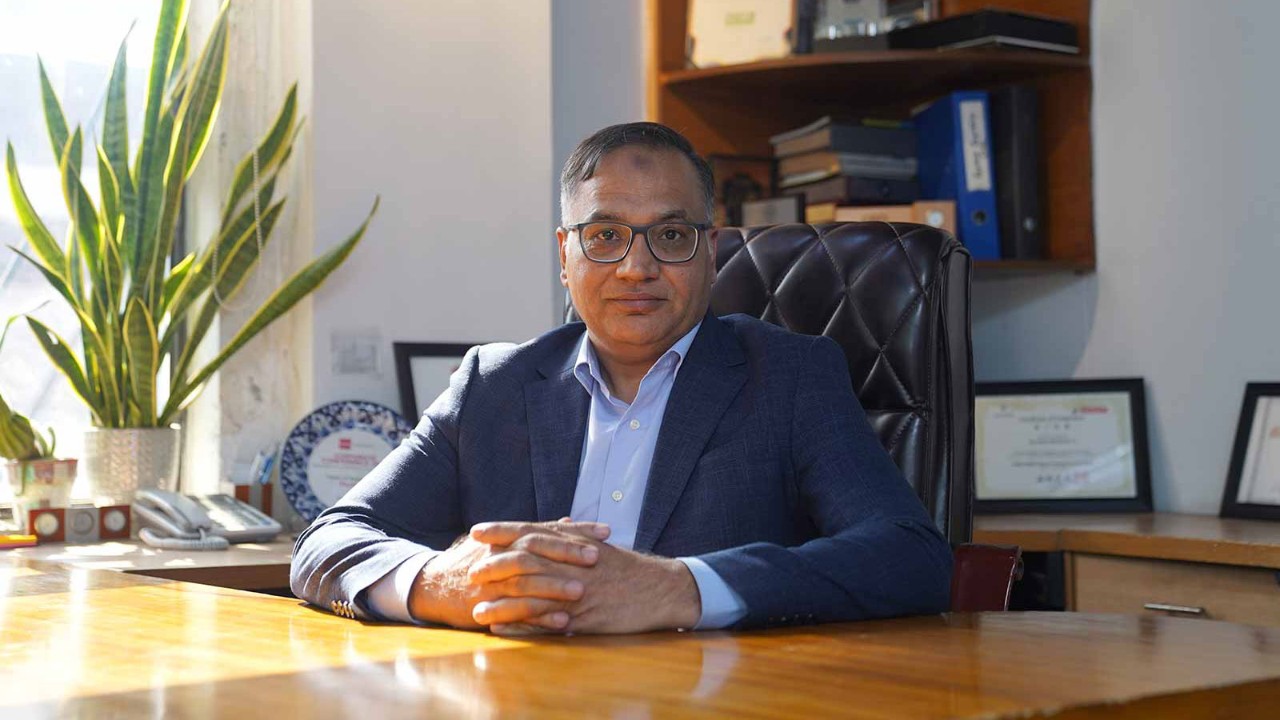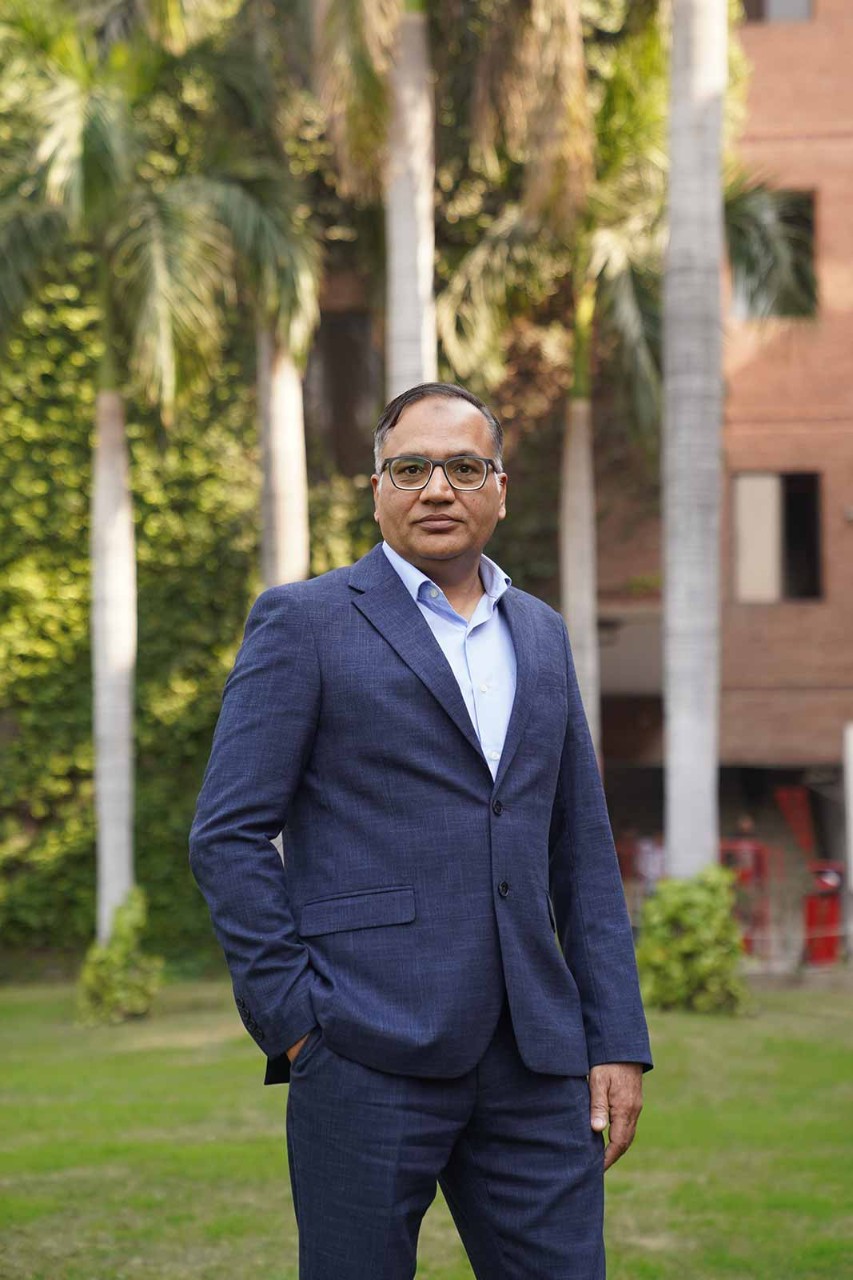
‘We are a textile city,’ Raja Amjad Ali says of Masood Textile Mills in Faisalabad, Pakistan.
This is no exaggeration. The company employs 40,000 people tasked with creating 180,000 garments per day for brands including Hugo Boss, Adidas, H&M, Marks & Spencer and JCPenney. It operates four spinning units, two dye houses, eight knitting facilities, two printing and embroidery centres, and no fewer than eight sewing bases.
‘Planning helps identify potential risks and create contingency plans’
The business, says Raja Amjad, who is general manager of strategic planning, finance and costing, is ‘very complicated and very challenging because we are competing with the rest of the world’. It is likely the biggest vertically integrated textile business in Pakistan. It does everything from growing organic cotton, spinning yarn, dyeing, knitting fabric, printing designs and cutting patterns before deploying scores of machinists to turn the material into high-quality clothing ready for shipping anywhere around the world.
All in the planning
At the heart of the company sit the three departments overseen by Raja Amjad: planning, budgeting and costing, and materials and supply-chain management. Planning is, he says, the ‘backbone’ of Masood’s success, allowing the company to have a clear roadmap each season that ‘aligns short-term actions with long-term goals’.
‘Without proper planning,’ says Raja Amjad, ‘we would waste resources and miss opportunities. Planning helps identify potential risks and create contingency plans.’
‘My expertise has made me a key player in business growth and sustainability’
Raja Amjad pays tribute to his three teams, who have enabled the company to adapt to change and maintain a ‘competitive edge’.
‘My teams translate plans into actionable steps and keep operations running,’ he says.
CV
2009
General manager, strategic planning, finance and costing, Masood Textile Mills, Pakistan
2003
Senior accountant, Flexmaster Canada, Canada
1994
Manager, audit and accounts, Raja Salim & Co Chartered Accountants, Pakistan
Work at Masood can vary from simple items such as underwear that can go through a highly automated process to high-fashion items that require enormous skills from the machinists. Planning must therefore consider a host of variables from the number of garments required all the way to the weight of the fabric.
The highest returns come from the most sophisticated clothing. ‘They give us good margins because a lot of people cannot do this,’ Raja Amjad says.
Alternative approach
A recent innovation is the introduction of a direct-to-store (DTS) model, which sees Masood research, plan, design, make and deliver clothing to individual stores of US retail stalwart JCPenney.
While Raja Amjad sees DTS as an ‘efficient alternative’ to traditional supply chains, he stresses that the model relies on ‘robust logistics’, precise demand forecasting and advanced technology integration throughout the process.
‘As e-commerce and just-in-time supply chains grow, finance experts will play a critical role’
DTS, he says, could play a ‘key role’ in maintaining the competitiveness of both Masood and retailers. However, its success depends on having finance professionals who stay close to the front line of implementation.
‘Finance professionals are key decision-makers in cost control, financial risk management and profitably analysis within the DTS model,’ Raja Amjad says. ‘As e-commerce and just-in-time supply chains grow, finance experts will play a critical role in optimising DTS for long-term business success.’
Despite its scale and innovative practices, it has not been an easy few years for Masood. While Pakistan has gained ground against other manufacturing countries, including mainland China, a depreciation of the Pakistani rupee has added to its own cost base.
At the same time, global economic developments and the geopolitical landscape are adding pressure. Around 60% of Masood’s products are exported to the EU, with the remainder going to the US. In both markets, inflation has created challenges. On top of this comes the recent hike in US tariffs, which are currently paused and under negotiation.
Masood Textile Mills
1984
Founded in Faisalabad, Pakistan
PKR59bn
Revenue in 2024
24,000
Number of employees
4,800
Number of stitching machines
The importance placed on the sector is reflected in the Pakistani government’s Textiles and Apparel Policy 2025. Introduced in 2020, the initiative aims to double turnover to US$40bn by this year. Measures include reducing energy costs, adjusting tariffs, supporting cotton growers and improving infrastructure.
‘Pakistan is seeing a rise in organic cotton, water recycling and solar-powered factories’

Improved sustainability is, of course, key; fashion changes fast but the switch to clothing and production that do less harm is an enduring feature of big brands and what they want from suppliers. ‘Global buyers demand eco-friendly and sustainable production,’ Raja Amjad says. ‘Pakistan is seeing a rise in organic cotton, water recycling and solar-powered factories.’
Return journey
Raja Amjad’s move to Masood in 2009 marked a return to his home country after five years in Toronto, Canada, where he was senior accountant at Flexmaster, a manufacturer of pipe fittings.
The ACCA qualification has, says Raja Amjad, been crucial to his success. ‘My ACCA professional qualification is well suited for a business planning role, particularly in manufacturing,’ he says. ‘My expertise in financial strategy, risk management and cost optimisation has made me a key player in business growth and sustainability.’
Going forward, technological advances will be a deciding factor, and Raja Amjad is optimistic that the business is fit for the future. ‘Automation, AI and the Internet of Things will increase efficiency,’ he says, pointing out that Masood has even developed its own software. ‘Masood’s investment in Industry 4.0 will gain a competitive edge.’
Raja Amjad also sees his own future tightly bound up in those developments.
‘My aspiration is to become a leading strategic business planner, driving innovation, growth and sustainable business success for organisations worldwide,’ he says. Sounds like a role that will suit him well.


